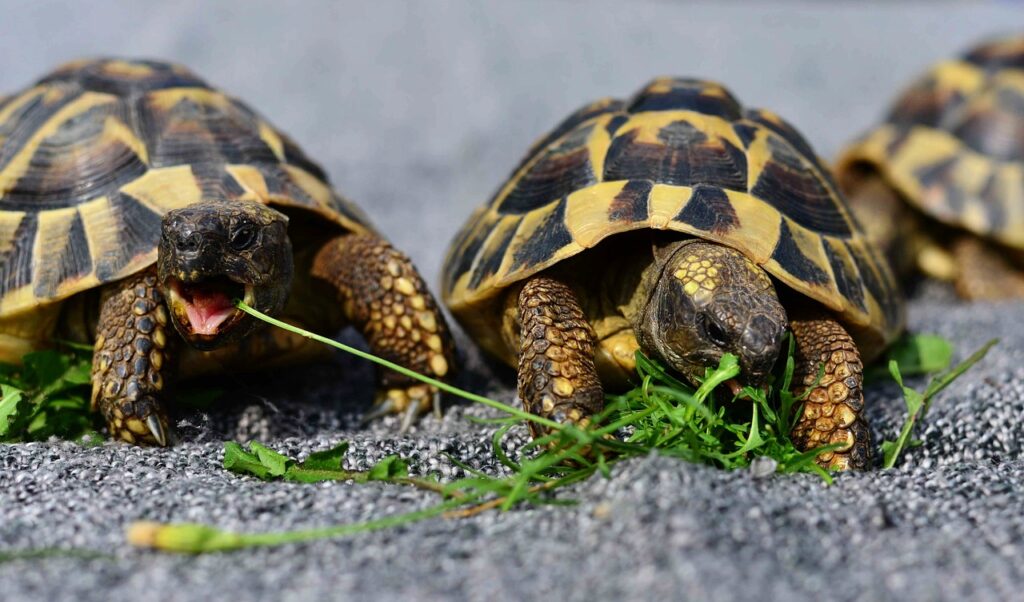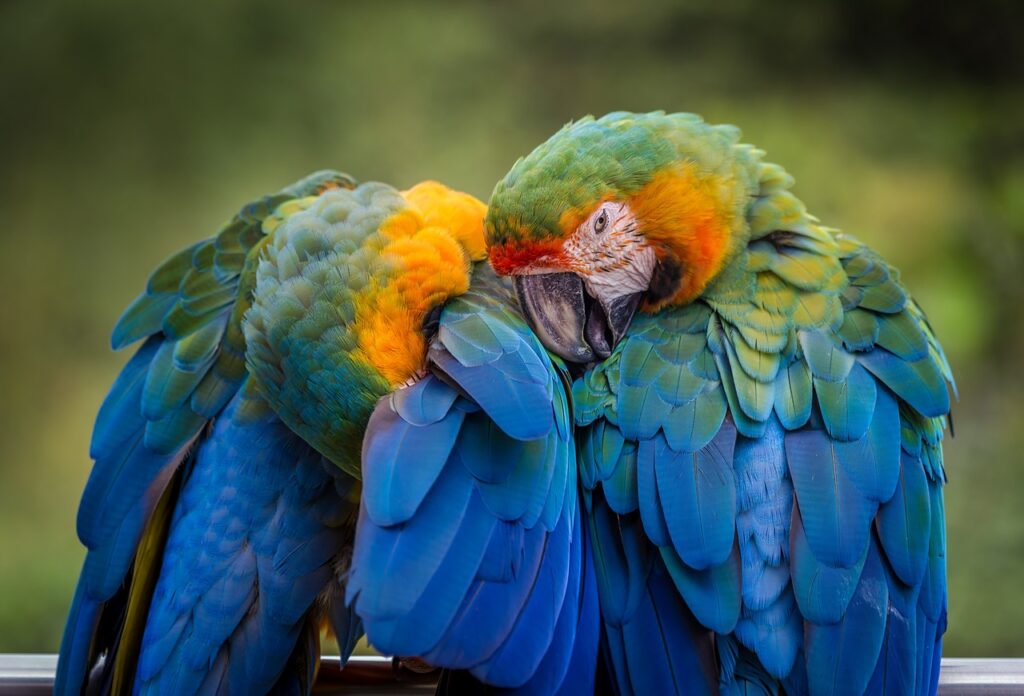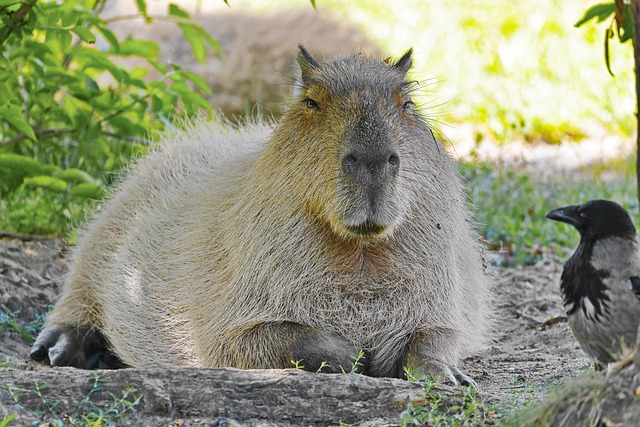When choosing a pet, potential pet owners often consider the commitment involved. While dogs and cats are beloved companions, their lifespans may not match the longevity you’re seeking. If you’re looking for a pet that could become a lifelong friend, you might be surprised to learn which animal tops the list for the longest lifespan.

Table of Contents
The Longevity King: Tortoises
Tortoises reign supreme in the pet longevity stakes. Notably, the Aldabra giant tortoise can live beyond 100 years, with some individuals reputedly reaching 150. This slow-paced, herbivorous reptile requires a specific habitat and diet, but for those prepared for the commitment, a tortoise is a companion that could span generations.

Birds That Outlive Others: Parrots
Parrots, particularly large species like Macaws and Cockatoos, can live for several decades, often up to 50-70 years. Parrot owners enjoy a dynamic relationship with their feathered friends, thanks to their intelligence and ability to mimic speech. However, their long life means you need to plan for their care over many years.

Image by Amy Irizarry from Pixabay
Underwater Long-Livers: Koi Fish
Koi fish, with their graceful movements and vibrant colors, are a centerpiece in many outdoor ponds. These peaceful fish can live up to 35 years and sometimes more, providing decades of tranquility to their owners. Proper pond maintenance and care are essential to ensure their long and healthy life.

Image by Elaine from Pixabay
Unassuming Champions: Giant Rodents
The lesser-known and surprisingly long-lived pet is the Capybara – the world’s largest rodent. In captivity, these giant rodents can live 12 years or more with proper care. They are sociable creatures and do best with companionship, either from humans or their kind.

Image by sharkolot from Pixabay
Four-Legged Friends: Horses and Donkeys
Horses and donkeys are notable for their relatively long lifespans among larger animals, living on average between 25 to 30 years. This can extend even longer with excellent care and a bit of luck. The lifelong bond formed with equine companions is irreplaceable, but it’s essential to consider the commitment and space they require.

Image by sharkolot from Pixabay
While the lifespans of pet animals can vary greatly, those seeking a long-term companion should consider the commitment and care associated with these enduring pets. Whether you’re mesmerized by the slow and steady tortoise, enchanted by the intelligent parrot, soothed by the serene koi, fascinated by the gentle giant capybara, or thrilled by the noble horse – choosing a long-lived pet is a rewarding decision that can bring joy for many years, if not generations.
Remember, longevity comes with responsibility. Whichever pet you choose, ensure you’re ready to provide a loving home for the extent of their potentially lengthy life.
Ensuring a long and healthy life for your pets involves a multipronged approach that includes proper nutrition, regular exercise, routine veterinary care, mental stimulation, and a loving environment. Here’s a comprehensive guide for your blog, offering pet owners practical strategies to help their pets live longer.
Lifelong Companions: Strategies to Help Your Pets Thrive into Old Age
As devoted pet owners, we all wish for our furry friends to stay with us for as long as possible. A pet’s longevity is influenced by genetics, environment, and lifestyle choices we make for them. By adopting a proactive approach to their well-being, we can enhance not just their lifespan but also their quality of life. Here are effective ways to help your pets live longer, happier lives.
1. Optimized Nutrition
The adage “you are what you eat” applies to our pets too. A balanced diet tailored to your pet’s age, breed, and health status is crucial.
- Avoid Overfeeding: Overweight pets are prone to numerous health issues. Keep portion sizes appropriate and limit treats.
- Quality Food: Choose high-quality commercial pet foods or consult a vet for a homemade diet plan.
- Hydration: Ensure they have access to clean, fresh water at all times to prevent dehydration.
2. Regular Exercise
Physical activity is vital for maintaining a healthy weight and supporting cardiovascular, muscular, and mental health.
- Daily Activities: Dogs may need walks, runs, or playtime, while cats benefit from interactive toys and climbing structures.
- Age-appropriate Exercise: Adjust the type and intensity of exercise based on your pet’s age and health.
3. Veterinary Care
Routine check-ups can catch problems early when they’re more treatable.
- Vaccinations & Preventatives: Keep up with vaccinations and parasite prevention.
- Dental Care: Regular dental check-ups and cleanings prevent diseases that can affect overall health.
4. Mental Well-being
Mental health is as important as physical health. Boredom and stress can lead to destructive behaviors and health problems.
- Enrichment: Provide toys, puzzles, and interaction to keep your pet’s mind engaged.
- Training: Positive reinforcement training strengthens your bond and keeps your pet’s mind active.
5. A Safe Environment
Protect your pets from accidents and injuries.
- Home Safety: Pet-proof your home by keeping toxic substances and dangerous items out of reach.
- Supervision: Always supervise your pets during outdoor activities to prevent accidents.
6. Love and Attention
A nurturing environment filled with affection and attention helps pets thrive.
- Bonding Time: Spend quality time with your pets every day.
- Stress Reduction: Create a peaceful home environment for your pets to relax.
7. Spaying/Neutering
Spaying and neutering can prevent various diseases, including certain cancers, and can help control the pet population.
Achieving a long life for our pets takes commitment and understanding. By providing balanced nutrition, regular exercise, medical care, mental stimulation, and a loving, safe environment, you are setting the stage for your pet to maximize its chances for a longer, healthier life.
Remember that each pet is unique, and their needs may change over time. Keeping in tune with their changes and maintaining a close relationship with your veterinarian ensures that you’re giving your beloved companion the best chance at a long and fulfilling life.
Frequently Asked Questions
The average lifespan of a domestic cat ranges from 12 to 15 years, though with proper care, some cats live into their 20s. Factors like genetics, diet, environment, and healthcare contribute to their longevity.
Dogs’ lifespans vary widely by breed, with smaller breeds often living 10 to 15 years, medium breeds around 10 to 13 years, and larger breeds typically 8 to 12 years. Lifestyle and health care can also affect lifespan.
Pet rabbits generally live between 8 to 12 years. A rabbit’s lifespan can be influenced by factors such as breeding, indoor living conditions, diet, and regular veterinary care.
Hamsters have a shorter lifespan than many pets, living on average 2 to 3 years. The type of hamster can affect this, with Syrian hamsters often living longer than dwarf varieties.
Parrots can have particularly long lifespans, with smaller species like budgies living 5 to 10 years and larger parrots like macaws and cockatoos potentially living 50 years or more with proper care.
Certain species of pet fish can live for decades. For example, goldfish can live up to 10-15 years or longer if they are well-cared for in a properly maintained tank or pond.
Tortoises are known for their longevity, with many species living 50 years or more. Proper diet, environment, and healthcare are vital, and some tortoises have been known to live over 100 years.
Guinea pigs typically enjoy a lifespan of 4 to 8 years. Their longevity can be influenced by factors such as diet, housing, and companionship, as they are social animals.
Ferrets generally live for 6 to 10 years. Their lifespan can be impacted by their living conditions, diet, and whether they have been spayed or neutered.
The lifespan of pet reptiles like snakes varies by species, but many can live for 20 years or more with proper care. For example, corn snakes can live for about 15-20 years, while larger species like pythons can live upwards of 25-30 years or more.




























